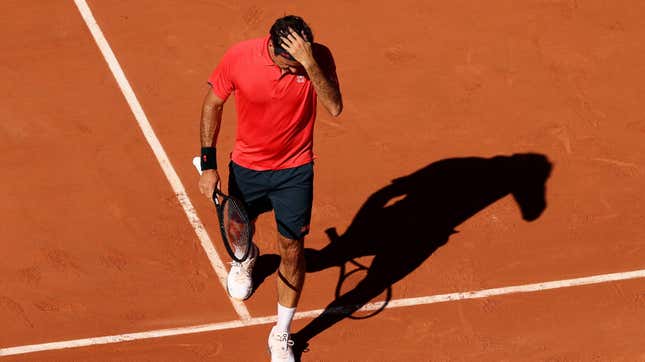Tennis Federation President Who Fined Osaka Says He 'Respects' Roger Federer's Withdrawal From French Open
Gilles Moretton, the man responsible for fining Naomi Osaka, took no issue with Federer's decision to "preserve" himself.
Latest

When Naomi Osaka announced to her fans via Instagram that she would no longer be participating in press events at the French Open, she was met with swift condemnation from the French, U.S., and Australian Opens as well as the powers that be at Wimbledon. In a joint statement, Grand Slam organizers slapped Osaka with a $15,000 penalty and threatened her additional fines and expulsion if she continued to refuse post-match interviews. Gilles Moretton, president of the French Tennis Federation and one of the architects behind this message, defended it in a Wednesday interview with the New York Times: “I think we did very, very well,” he said. “The goal was not to penalize her. It was to say clearly: Here’s the rule.”
But when Moretton was asked in the same interview about the third-round withdrawal of tennis great Roger Federer—one of the tournament’s biggest selling points—his understanding and empathy suddenly deepened.
Moretton said he had “too much respect for Roger” to question his decision to withdraw from competition since Federer did so to maintain his knee health for Wimbledon after two surgeries, the most recent of which took place in early 2020.
-

-

-

-

-

-

-

-

-

-

-

-

-

-

-

-

-

-

-

-

-

-

-

-

-

-

-

-

-

-

-

-

-

-

-

-

-

-

-

-








































